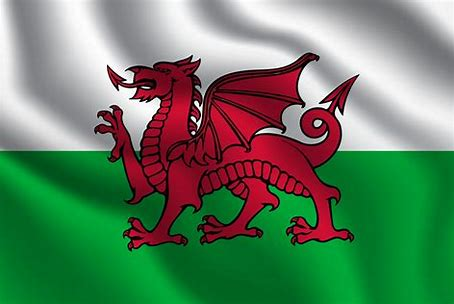Short History of the 38th (Welsh) Division in the Great War.
During 1914 several thousand recruits to the Welsh Division were collected in Cardiff.
Oswald joined the 13th Batallion of the Royal Welsh Fusiliers in the 113th Brigade of
the 38th (Welsh) Division.
On the 19th January 1915 Divisional headquarters opened at Colwyn Bay, but at the time
the units were scattered from Rhyl to Abergavenny and no divisional exercises could be
carried out. In June of 1915 some of the units of the Welsh Division were sent to
Winchester, and by August 1915 the whole Division was concentrated there.
Following open warfare and musketry training - it was considered that trench warfare
could be learnt better in France - the Division was warned to prepare to move to France.
On the 21st November the advance party left for France, and on the 29th November the
Queen, accompanied by Princess Mary, reviewed the Division on Crawley Down. On the 1st
December the remainder of the Division started to leave Winchester bound for France.
By the 6th it had concentrated west of Aire and joined XI Corps.
For the remainder of the Great War the 38th (Welsh) Division served on the Western Front
in France and Belgium and was engaged in the following
operations:
1916
Battles of the Somme
5 - 11 July ... Battle of Albert
7 - 11 July ... Mametz Wood
1917
31 July - 6 August / 19 Aug - 11 Sep ... Battles of Ypres
31 July - 2 August ... Battle of Pilckem Ridge
1918
Battles of the Somme
5 April ... Battle of the Ancre
21 - 23 August ... Battle of Albert
31 August - 3 September ... Second Battle of Bapaume
Battles of the Hindenburg Line
12 September ... Battle of Havrincourt
18 September ... Battle of Epehy
5 October ... Battle of the Beaurevoir Line
8 October ... Battle of Cambrai
The Final Advance in Picardy
17 - 22 October ... Battle of the Selle
4 November ... Battle of the Sambre
As Oswald died of wounds on the 16th of November 1918, it is very likely that he got those
wounds at the Battle of the Sambre. The Sambre is a river in France and Belgium, about
193 km (120 miles) long, rising in northern France.
The river flows north-east and enters the Meuse River near Namur, Belgium.
At 6:00 AM on the 5th November the 33rd Division passed through the front line, and the
38th Division then collected in the forest of Mormal with headquarters at Locquignol.
At 9PM on the 7th the 38th Division relieved the 33rd
on the right of the V Corps, beyond the Sambre.
Oswald was in the 13th Batallion of the 113th Brigade, which during the next 3 days formed
the advance guard which pushed steadily forward. When the armistice brought the hostilities
to an end at 11AM on the 11th November, the
brigade had it's headquarters in the suitably named Wattignies la Victoire.
Oswald fought those battles, and died 5 days after the end of the carnage that was the Great
War. He sent the letter to his Aunty just a few months before he died, on the 23rd June 1918.



